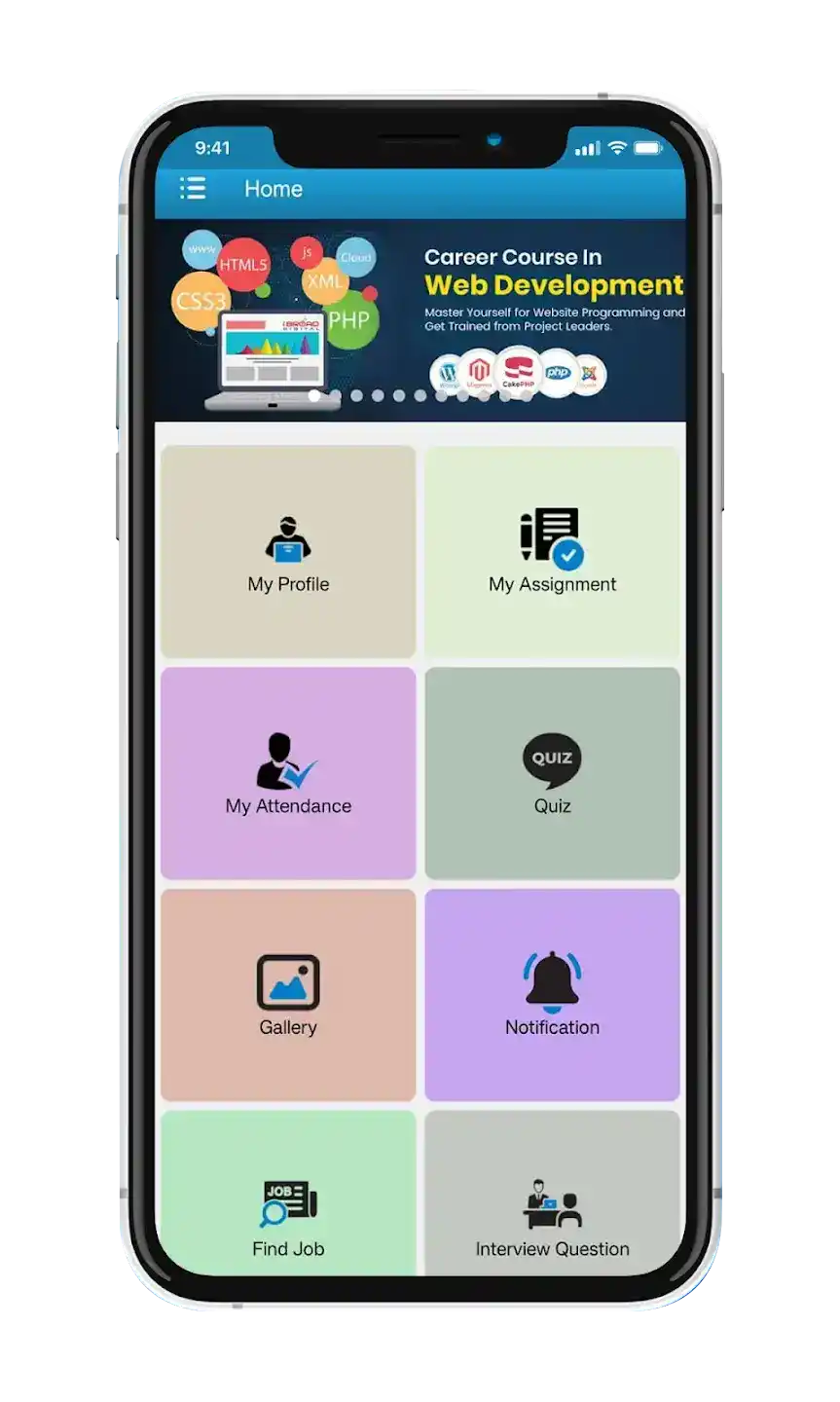Drupal
Drupal
Drupal is powerful, flexible software and is ideal for sites with many features and users. Many government agencies use Drupal, including WhiteHouse.gov, and the national sites for countries such as india and France. Many famous companies use Drupal including Pfizer, Sony and the New York Stock Exchange. Because Drupal is in demand with large organizations, the Drupal job market is very strong. If you know Drupal well, you have a great chance of finding work.
Course Feature
Drupal
- Duration 2 Months
- Class Timings 1.5 hour a day, 5 days a week
- Eligibility

Course Features
Drupal Course in Jaipur
Jaipur is an excellent place to pursue a Drupal course due to its growing reputation as a technology hub and the practical advantages it offers to students and professionals. Training programs in Jaipur often focus on real-world applications, offering hands-on projects that help bridge the gap between theoretical knowledge and practical skills. Additionally, Jaipur's burgeoning IT industry creates promising opportunities for internships and placements, giving learners a competitive edge in the job market.
Drupal Course Institute in Jaipur
The DAAC in Jaipur offers a variety of IT and software development courses, including training on Drupal. DAAC specializes in providing practical, career-focused education with experienced instructors, guaranteed placement assistance, and collaboration with leading tech companies. DAAC provides both online and offline training modes, ensuring flexibility for students.
Drupal Course Syllabus
A Drupal course syllabus typically covers the foundational and advanced aspects of using this powerful content management system. It begins with an introduction to Drupal, including its features, installation process, and basic configurations. Students learn to create and manage content, configure menus, and work with content types and taxonomy. Here you can see our Drupal syllabus:-
MODULE - 1
Basic Site configuration
- Site Information
- Date and Time
- Drupal Localhost Install
- Files Uploads
- Clean URLs
- Site Maintenance
- Input Formats
- Themes (concepts, switching)
Minor Exam and Project
MODULE - 2
Drupal Basic
- Looking at a basic Drupal page – what does it include? (Header, blocks, links, comments….)
- Drupal’s module weighting and selection process
- Basic structure of a module – .module, .info, .install files
- What is drupal
- What is acquia Drupal
- What Technology Does use Drupal
- Content Management System
- Content Management Framework
Minor Exam and Project
MODULE - 3
Drupal Termonology
- Modules
- Themes
- Nodes
- Blocks
Minor Exam and Project
MODULE - 4
Drupal Workflow
- Bootstrap
- Hooks and callbacks
Minor Exam and Project
MODULE - 5
Getting Started
- Installing Drupal
- The Admin Interfacee
- Creating Content
- Managing Content
- Site Building
- Site Configration
- How to add Multiple menu and manage it
- User Management
- Roles
- Permissions
- Creating User Accounts
- Reports
- Help
Minor Exam and Project
MODULE - 6
Layout in Drupal
- Blocks And Regions
- Default blocks
- Custum Blocks
- How To Add New Block
- Configuring Blocks
- How To Add New Menu and manage it
- How To Add Content Type and manage it
- How To Add Seo friendly URL.
- How To Use Site Blog
- Enable Default Blocks and Controlling the Front page
Minor Exam and Project
MODULE - 7
File System
- Downlouds Methods
- Upload Module
- Upload Path Module
- Storing User Uploaded Materials
- Filed Permissions
- Adding Content Types
- Text Fields
- Numeri Fields
- Contributed Module:Link Fields
- Contributed Module:Image Fields
- Contributed Module:Media Fields
- Contributed Module:Field Group
- Contributed Module:Node Refreance
- Using The Display Fields’ Setting
- Teaser /Body Displays
- Lebels
- Display Formats
Minor Exam and Project
MODULE - 8
Working With Texonomy
- What is Texonomy
- Vocabularies
- Required Vocabulary
- Controlled Vocabulary
- Terms
- Single and Multiple Terms 3
- Adding Terms
- View Content By Terms
- Storing Texonomy
- Module Based Vocabulary
- Common Functions
Minor Exam and Project
MODULE - 9
Advanced Content With Contributed Module:CCk
- The Page and the Story
- Input Filter
- Create Custum Content Types
- Storing User Uploaded Materials
Minor Exam and Project
MODULE - 10
Advanced Display With Contributed Module
- View Type
- Default Views
- Overriden Views
- Normal Views
- Displays
- basic Setting
- Dispaly Types
- Default Dispaly
- Page Display
- Block Display
- Rss Feed
Minor Exam and Project
MODULE - 11
Creating a view with the views user interface
- Basic Setting
- Fields and Node
- Filters
- Agruments
- Relationship
Minor Exam and Project
MODULE - 12
Uber Cart
- What is Uber cart?
- Install ubercart
- Add categories/products in ubercart
- Customize Ubercart theme
- Payment gateway drupal
Minor Exam and Project

Why choose DAAC for Drupal Course
As a leading Drupal institute in Jaipur, we offer Drupal courses and specializations. Many students have been able to start their careers with our programs. Here are some of the reasons why DAAC is the right place for Drupal courses and it gives you the following benefits.
- Hands-on experience with live projects.
- We help you obtain Drupal training, certifications, & jobs in Jaipur.
- We offer free demo sessions.
- Experienced faculty.
- Both practical and theoretical classes are taught.

We Will Contact You, At a Time Which Suits You Best
Benefits of Studying Drupal Course
- In-demand Skills: Drupal is widely used for complex, high-traffic websites, ensuring a strong demand for developers.
- Customization Capabilities: Drupal's open-source nature allows for extensive customization, giving you the skills to develop unique solutions.
- Career Opportunities: Mastering Drupal can open doors to various web development roles, with competitive salaries.
- Community Support: Drupal has an active community that provides ongoing learning opportunities and support.
- Scalable Learning: It sets the foundation for expanding into other areas like SEO, digital marketing, and DevOps.

FAQ
Most Comment Question?
Projects
Our Projects
.jpg)
Book an Artiste
.jpg)
The Law Desk
.jpg)
Ebox Tenders
.jpg)
kanhha cables
.jpg)
Rotary
.jpg)
Property Bull
.jpg)
Tirupati Plastomatics
.jpg)
Astro Trishla
.jpg)
Neewara
.jpg)
Zepjob
.jpg)
kbct india
.jpg)
Miss Bali Tropix

Skills Certificate
From the
DAAC

Discover Our App
Access your courses anywhere, anytime & prepare with practice tests












